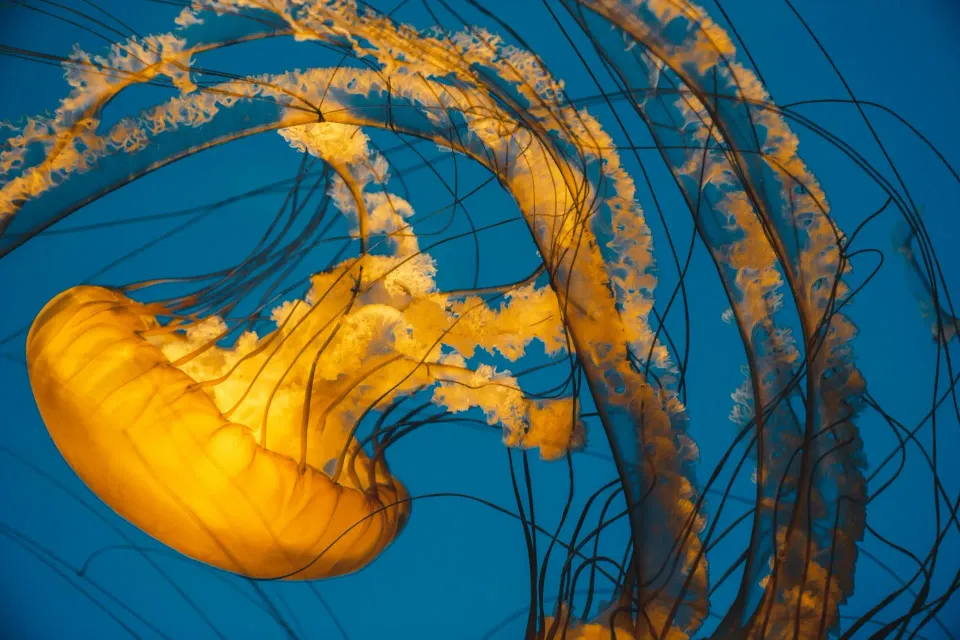
Uncertainty
We humans tend not to respond to uncertainty well. As Jonathan Fields noted in his book Uncertainty:
On a visceral, “can’t explain why” level, most people don’t like uncertainty. Actually, that’s an understatement. Most people run like hell from it, even when there’s no rational reason to prefer a known option over an ambiguous or uncertain one.
Reflecting on myself, I have observed that, when faced with the unknown and uncertain, I tend to either of the following reactions[1]:
- Fight: To dominate and control
- Flight: To ignore and avoid
Of course, none of these responses tended to produce outcomes that either I or others desired or appreciated. Both of these tended to generate far more stress and distress than was worth the trouble.
So, what did I do when both of these failed?
- Freeze: To collapse into helplessness and existential despair
- More fight: To rage at others or the unfairness of life
Likewise, it became apparent that both of these were just as unhelpful as the previous two.
Power
When I reflected on why I chose any of the above, though, I realised that experiencing uncertainty triggered in me a crisis of power. Simply put, uncertainty makes me feel powerless.
There were definitely moments in my life when I found myself wondering, "How am I to stay sane, much less live meaningfully, in the face of such existential powerlessness?" It felt like a dead end.
But was it truly a dead end? An unresolvable? I had to ask myself, "Am I truly powerless in the face of uncertainty?" And if the answer is, "Not always," then:
- How can I respond to uncertainty from a space that does not assume powerlessness?
- What does power look and feel like in the face of uncertainty?
This is where I found myself recalling Starhawk's thinking on power, and her concepts of:
- Power-over,
- Power-from-within, and
- Power-with.
In Truth or Dare, she writes:
Power-over is linked to domination and control; power-from-within is linked to the mysteries that awaken our deepest abilities and potential. Power-with is social power, the influence we wield among equals.
To reframe my above reactions in this context:
- To control or to rage is to attempt to establish power-over uncertainty, and
- To avoid or to collapse is to cede power in the face of uncertainty.
Hence, to re-ask the question using Starhawk's terminology: What does power-from-within look and feel like in the face of uncertainty?
Flow
Flow emerged as my answer. To quote Bruce Lee's overused words:
Be water, my friend. Empty your mind. Be formless, shapeless, like water. You put water into a cup, it becomes the cup. You put water into a bottle, it becomes the bottle. You put it into a teapot, it becomes the teapot. Now, water can flow, or it can crash. Be water, my friend.
In chapter 78 of the Dao De Jing, it is written, as translated by Chen Guying in his book The Annotated Critical Laozi:
There is nothing more delicate in the world than water, but when it collides with the strength of objects, it cannot be defeated by anything, because nothing can take its place. Weakness surpasses strength, what is yielding surpasses what is indomitable.
In case you misunderstand the choice and use of the word "yielding" here, Chen Guying further explains:
Laozi uses water as an example to illustrate the principle according to which what is yielding overcomes what is indomitable. Just look at rainwater dripping from the eaves little by little, which can perforate a huge boulder after continuing for years on end. Or consider a flood as it engulfs fields and houses and sweeps away bridges; there is not a single solid thing which can hold it back. That is why Laozi says that what is gentle and weak can overcome what is firm and strong. Obviously, when Laozi talks about “gentleness and weakness”, this has nothing to do with feebleness and powerlessness in the usual sense, but rather has the connotation of something which is incomparably unflinching.
It is a very different conception and, dare I say, even tangibly different sensation of power. Holding both Starhawk's and Laozi's models of power, not just in mind but also in body, I contemplated my relationship with uncertainty:
If:
- I cannot stop it,
- I cannot change it, and
- I cannot run from it.
What, then, can I do?
Instead of attempting power-over through control or domination, or surrendering power through avoidance or collapse, I can choose to flow with uncertainty.
I was in sitting meditation, or what I call immersion practice, contemplating this when I felt the physical sensation of practicing tenkan in my body.
I took a few Ki Aikido classes in my early 20s, just enough to learn some of the basic movements. One of these is the tenkan, or the pivot. If you watch videos on the move, it looks simply like turning on the spot. It is, after all, one of the most basic of movements, and is not necessarily meant to be used on its own. It is often combined with other moves, like the irimi tenkan.
However, I clearly remember how the tenkan showed me a completely different somatic and spatial response to overwhelming force.
Executing even this most basic of moves requires you to change how you perceive and respond to force. Ki Aikido is not about responding to force with force, but rather, similar to Tai Ji, to redirect and/or neutralise incoming force by flowing with it.
How, though, can you flow with something you cannot stop, change, control or avoid?
You shift your point of perception: Ergo, you shift your perspective of uncertainty. Do you perceive uncertainty as:
- An adversary or obstacle to be dominated or eradicated?
- An overwhelming force against which you are powerless?
Or do you perceive uncertainty to be a natural and neutral phenomena of reality, like, say, the weather[2]?
We can't really control the weather[3]. Yet, in your everyday life, you probably don't find yourself attempting compulsively to either control or avoid the vagaries of weather. Neither do you throw your hands up at the capriciousness of weather, thinking, "What's the point in making plans and going out, then? Why even try?"
You have learned to flow with it.
- You turn to the science[4] of weather forecasting, however imperfect, to give you the best probable idea of what weather to expect.
- You plan your day accordingly.
- If the forecast turned out inaccurate, you adapt accordingly.
- You also accept that weather fluctuations can range from pleasant to potentially life-threatening.
Essentially, you ask yourself:
- What is truly within my power here?
- And what is not?
- What can I do with what is within my power?
- And how can I respond to that which is not?
Thus, to flow with is to choose a response to uncertainty that is other than terror, rage or despair, and all the choices that are often borne from these. To neither dominate, nor surrender, but to stand up and walk with uncertainty from a space of power-from-within.
Fight or flight being two of Pete Walker's 4Fs complex trauma typology, the other two being freeze and fawn. Freeze shows up later in this article as "collapse". ↩︎
This metaphor no longer holds water so well, given that more and more, weather is influenced by anthropogenic causes, which of course brings us to the question of, "If we humans are not separate from nature, can our actions be deemed separate from nature?" That is a trick question, though, I think: We are inseparable from the eco-systems in which we exist, yes. However, we can choose to behave as if we are not, and thus make decisions and take actions that go against our own survival (and the interests of all) as eco-systemic co-inhabitants. ↩︎
Yet another metaphor that is leaking water, no pun intended: Looking at you, cloud seeding. ↩︎
Something we can no longer dare to take for granted. ↩︎
If you enjoyed this article, and your finances allow it, please consider becoming a paid subscriber to support my writing!
If you eschew subscriptions (I get it!), but would still like to chip in, you can leave a one-time tip here.
to receive the latest posts in your inbox


Member discussion